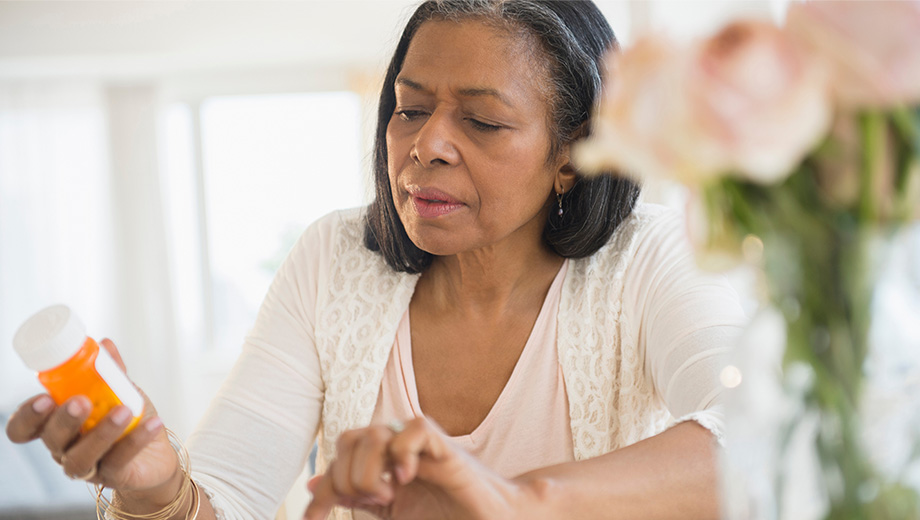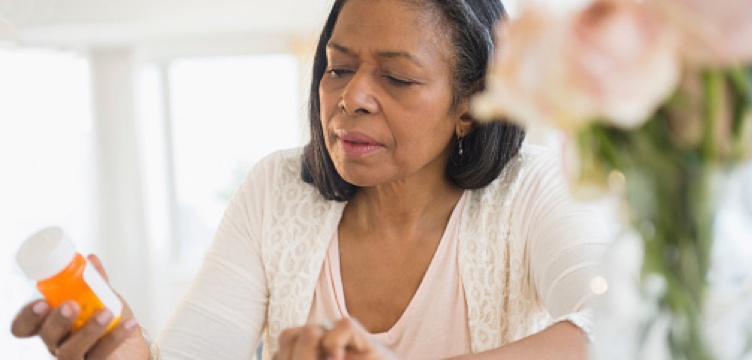Life with diabetes
Hearing (and accepting) your diagnosis

Maybe you just felt off. Maybe you were excessively thirsty, really tired but not sleeping well, drained of energy. Maybe your vision was suddenly blurry. Maybe you lost weight without trying. Whatever might have prompted you to seek medical attention, you likely weren’t expecting to maybe hear, “You have diabetes.” For many people, the world may shift around them as they process the news.
What is diabetes?
If you’re diagnosed with type 1 or type 2 diabetes, your body either can’t make the hormone insulin or doesn’t use the hormone like it should. Insulin is important in giving your body energy from the foods you eat. Without insulin, blood sugar may build up in your blood, making you sick.1
- Type 1 diabetes may occur at any age, but it happens most frequently during childhood and adolescence.2 Causes are unknown, but researchers think there may be a strong genetic link.3 There is currently no cure for type 1 diabetes, an autoimmune disease that occurs when the pancreas can’t make insulin.4
- Type 2 diabetes is the more common type of diabetes. The pancreas still produces insulin, but the insulin may not work in the body like it should.5

How is diabetes diagnosed?
The first step in diagnosing diabetes may be a blood test to help evaluate your current blood glucose level. Some doctors might also order a glucose tolerance test or hemoglobin A1C test to confirm the diagnosis.6
What may happen following a diagnosis?
Following a diagnosis, your doctor may tell you that you need to monitor your blood glucose on a regular basis; that you may have to count carbs and track and balance what you eat and drink; and that depending on your individual circumstances, you may also have to ramp up your physical activity level.7
Accepting your diabetes diagnosis
After a diagnosis, you may feel a range of emotions. Consider taking it day-by-day and giving yourself some time to digest the information. It may be a learning curve. Here are some tips to help you cope:
- Lean on your health care team to help you create a program that meets your needs.8
- Learn everything you can about your type of diabetes.9 Knowledge is power. Many resources may help you manage the disease, including Diabetes Care and Education Specialists.10 There are support groups and online message boards and forums that may help you. There’s a community of people likely dealing with the same frustrations and fears and challenges and concerns. Connecting with these resources may help so you don't feel alone.
- Ask friends and family to help you stay on track. Emotional support may be important.11
- You can still eat a range of delicious foods. You may just need to keep sugar, fat and salt to a minimum.12
- To help you control your portions, use the plate method: Fill half of your plate with non-starchy veggies, a quarter with lean protein and a quarter with healthy carbs.13
- Find healthy ways to deal with any possible stress levels, or perhaps talk to a mental health provider to help you stay in touch with your emotions.14
- If you smoke, quit. Smoking makes it harder to control your diabetes.15
- Maintain your weight.16
- Make exercise fun. (If it's a positive part of your routine, you're more likely to stick with it.)17
- Go in for regular checkups.18
Here's another thing to keep in mind — try to embrace a positive outlook. You can still go on vacation. You can still go out. You may just need to plan ahead and make some adjustments. With the help of technology, today’s management tools and sticking to a treatment plan, those diagnosed with diabetes can live long, healthy, meaningful lives.
Related links
More like this: